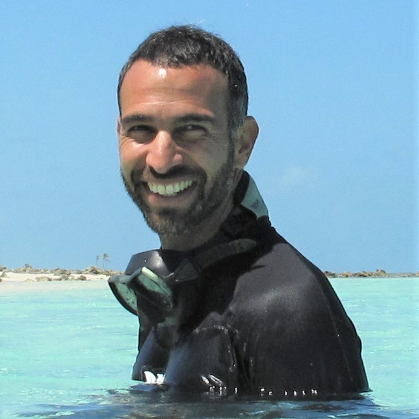About This Project
Tourism is the main source of income for Galapagos; however, the COVID pandemic collapsed this industry, causing job losses and affecting the livelihood of the local community. Sharks attract large numbers of tourists to Galapagos and may have an important role in the archipelago’s economic recovery. Our project will describe the economics of shark-diving tourism in Galapagos and how this industry can support the livelihood of the local community while assisting shark conservation.
Ask the Scientists
Join The DiscussionWhat is the context of this research?
Tourism is the primary source of income for Galapagos; however, the COVID pandemic collapsed this industry, with the local economy experiencing drastic revenue and job losses. This also had conservation implications as park entry fees account for a large partof the enforcement budget. As a result, the pandemic disruption increased the vulnerability of endangered shark populations to illegal fishing within the Reserve. Sharks are worth more alive than dead and shark-diving tourism may have an important role in the archipelago’s economic recovery. Assessing the value of sharks as a tourism resource will clarify their importance for the livelihood of the local community. This will in turn provide a strong argument for shark conservation.
What is the significance of this project?
This project will provide an economic justification for shark conservation and will highlight the need for the allocation of sufficient resources to protect shark populations in the Galapagos Marine Reserve. This is important because Galapagos is one of the last places in the world where large schools of critically endangered species of sharks, such as the scalloped hammerhead shark, can still be found. From a socio-economic perspective, it will also highlight the need to assure that alternative funding sources are allocated to conservation during disruptive events (e.g., a pandemic) to support the livelihoods of the local community and guarantee the long-term resilience of such a remote, but ecologically unique area.
What are the goals of the project?
Our project has three main goals. Firstly, we propose to describe the economics of shark-diving tourism in Galapagos, using official statistics and our survey data. We will assess the monetary flow from this industry into the Galapagos economy through the generation of business revenues, jobs and government taxes. Based on this analysis, we will assess the role shark-diving tourism has played in the economic recovery of Galapagos from the COVID pandemic. Thirdly, we will describe an eventual change in the relative importance of shark-diving tourism to the Galapagos economy as a consequence of the COVID pandemic. With this, the project will assist shark conservation strategies providing a strong economic justification to control overfishing of sharks
Budget
This budget will enable the implementation of the questionnaire surveys to collect data for the study. The surveys will be conducted at the two main airports in the Galapagos (islands of Santa Cruz and San Cristobal), as these are the entry and exit points of almost all the tourists visiting the archipelago. In Santa Cruz, where the researcher is based, the budget will cover the daily traveling costs from the town to the airport. The budget will also cover the traveling expenses for two boat trips to San Cristobal, one to conduct the questionnaire surveys and the other to provide feedback about the project results to the community and dive industry. This feedback will also be provided in Santa Cruz. The budget will also cover office supplies such as printing the questionnaires. Finally, the budget will help to cover a research assistant's salary.
Endorsed by
 Project Timeline
Project Timeline
We will develop the project over a period of 4 months, starting with a desktop review of the statistics and tourism industry data available (2 wks) and the design of survey questionnaires (2 wks). The tourist surveys will be implemented over a period of 6 weeks, in the two airports. This will be followed by the data analysis (2 wks), interpretation and reporting (4 wks). During this period, the project will also carry out two community feedback meetings.
Mar 06, 2023
Project Launched
May 14, 2023
Desktop survey
May 28, 2023
Questionnaire design
Jun 11, 2023
Survey implementation
Jun 25, 2023
Data analysis
Meet the Team
Gabriel Vianna
I have been involved in marine research and conservation for over 20 years, with a particular focus on promoting a more sustainable relationship between people and nature. I am fascinated by the oceans and by sharks in particular. As a shark researcher based in Galapagos, my work is focused on assessing the effectiveness of the Galapagos Marine Reserve in protecting shark populations, but also on developing science-based recommendations to improve this protection. To do this, my research includes monitoring the abundance of sharks over time and also investigating several aspects of the ecology and dynamics of the shark populations in the Galapagos region. Since the main threat to sharks is overfishing, my work also focuses on understanding the impact of fisheries on shark populations and on how we can reduce overfishing by promoting alternatives source of income to fishers, such as tourism or more sustainable fisheries.
Lab Notes
Nothing posted yet.
Project Backers
- 1Backers
- 1%Funded
- $5Total Donations
- $5.00Average Donation


